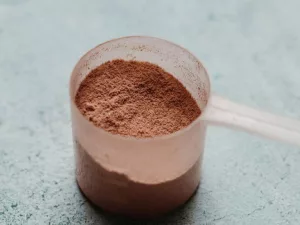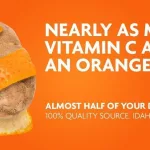The ketogenic, or keto, diet is a very low-carbohydrate, high-fat eating plan.
After several days on this regimen, your body enters ketosis — a metabolic state marked by elevated blood ketones and weight reduction.
Although the diet can offer advantages, many find it challenging to maintain consistently.
Some people claim that ketone supplements can imitate ketosis and boost blood ketone concentrations without altering dietary habits.
However, that’s not precisely how your body responds.
This piece explains whether taking exogenous ketone supplements can actually help you lose excess weight.
What Occurs in the Body During Ketosis?
When you follow a typical high-carbohydrate diet, your cells generally depend on glucose for energy.
Glucose is derived from carbohydrates in foods, including sugars and starchy items like bread, pasta and certain vegetables.
If you cut back on those foods, as with a ketogenic approach, you compel your body to seek alternative energy sources.
It then begins to use fat for fuel, which generates ketone bodies when broken down in surplus.
This metabolic shift places your body into ketosis.
Most individuals naturally experience mild ketosis during fasting periods or intense exercise.
The primary ketone bodies formed during ketosis are acetoacetate and beta-hydroxybutyrate; acetone is a third, less abundant ketone.
These ketones substitute glucose as energy and supply your brain, heart and muscles with fuel.
Researchers believe the ketone bodies themselves might play a role in the weight loss linked to a ketogenic diet.
SummaryKetosis is when your body produces elevated ketone levels and uses them for energy instead of glucose from carbohydrates.
What Are Exogenous Ketone Supplements?
Ketone bodies can be made inside your body (endogenously) or supplied from an external synthetic source (exogenously).
Ketones found in commercial products are exogenous ketones.
These supplements deliver primarily the beta-hydroxybutyrate form. The other main ketone, acetoacetate, isn’t stable enough for supplement formulation.

There are two principal types of ketone supplements:
- Ketone salts: Ketones bonded to a salt, commonly sodium, potassium, calcium or magnesium. They usually come in powdered form to be mixed with liquid.
- Ketone esters: Ketones attached to an ester compound, provided as a liquid. Ketone esters are mostly used in research settings and are less commonly available commercially.
Both supplement types have been demonstrated to elevate blood ketone concentrations, imitating the state achieved by a ketogenic diet.
In one trial, taking about 12 grams (12,000 mg) of ketone salts raised participants’ blood ketones by more than 300%.
For context, most ketone products on the market supply 8–12 grams of ketones per serving.
This spike in blood ketones after supplementation can be useful for people aiming to reach ketosis without strictly following the diet.
Proponents claim that supplementing with ketones may confer similar health benefits to a ketogenic diet, including fat loss.
Some users combine ketone supplements with a ketogenic diet, particularly during the initial phase.
This can speed up the time required to enter ketosis and ease the uncomfortable symptoms of transitioning from a higher-carb eating pattern to a ketogenic one.
Common transition symptoms, often called the “keto flu,” include constipation, headache, bad breath, muscle cramps and diarrhea.
Research is limited but suggests ketone supplements might reduce some of these symptoms.
SummaryTaking exogenous ketone supplements raises ketone concentrations in the blood, mimicking the ketosis that occurs on a ketogenic diet.
Exogenous Ketones May Reduce Appetite
Ketone supplements have demonstrated appetite-suppressing effects, which could help weight loss by reducing calorie intake.
In a study of 15 normal-weight participants, those who consumed a beverage containing ketone esters reported 50% less hunger after an overnight fast compared with those who drank a sugary drink.
This reduction in appetite was linked to decreased levels of the hunger hormone ghrelin between two and four hours after ingesting the ketone ester beverage.
However, ketone supplements may be less effective at suppressing appetite in individuals who have recently eaten.
Studies have shown higher blood ketone responses in people who were fasted before taking a ketone supplement versus those who had a meal (, , 16).
Since the appetite-lowering effects are associated with elevated ketones and reduced ghrelin, ketone supplements might be most beneficial during fasting periods, like first thing in the morning, rather than after a carb-containing meal.
Put another way, taking a ketone supplement after consuming carbs will still increase blood ketones but not to the same extent as in a fasted state, indicating the body is using fewer ketones because more glucose is available from the meal.
SummaryOne small trial found exogenous ketone supplements decreased appetite for over four hours in a fasted state, which could support weight loss efforts. More research is required before recommending ketone supplements for appetite control.
Arguments Against Using Exogenous Ketones for Losing Weight
Despite possible appetite-suppressing properties, the weight-loss potential of ketone supplements remains unclear.
Consequently, ketone supplements cannot currently be endorsed as a weight loss strategy. Some evidence even indicates they might impede fat loss.
Ketones Suppress Fat Breakdown
The goal of a ketogenic diet for weight reduction is to generate ketones from stored fat to serve as an alternate energy source.
But excessively high ketone concentrations in the blood can make the blood too acidic.
To avoid this, healthy individuals possess a feedback system that reduces ketone production if levels rise too high.
In other words, as blood ketone levels climb, the body produces fewer ketones. Therefore, taking ketone supplements may temporarily prevent body fat from being mobilized as fuel.
Ketones Provide Calories
Your body can utilize ketones for energy, which means they contain calories.
Ketones supply roughly four calories per gram — identical to the caloric value of carbohydrates or protein.
A single serving of ketone salts usually contains under 100 calories, but maintaining ketosis would require multiple servings throughout the day.
That’s because the effects of ketone supplements last only a few hours, necessitating repeated dosing to sustain a ketosis-like state.
Additionally, at roughly $3 per serving, costs can add up quickly (22).
SummaryKetone supplements aren’t truly ketogenic because they can inhibit your body’s own ketone production. They also contain calories, and depending on intake frequency, may not be a cost-effective weight-loss tool.
Side Effects
Exogenous ketone supplements are generally viewed as a means to raise ketone levels safely and effectively in the short term, but their long-term safety is uncertain.
Reported adverse effects are more common with ketone salts than with esters and include nausea, diarrhea and gastrointestinal discomfort.
Many users also report an unpleasant aftertaste.
Moreover, attempting to achieve ketosis via ketone salts is discouraged due to the large quantities of minerals you would consume.
One serving of some ketone salt products provides (22):
- 680 mg of sodium (27% of the DV)
- 320 mg of magnesium (85% of the DV)
- 590 mg of calcium (57% of the DV)
However, to sustain ketosis you might need doses every two to three hours, which would multiply these mineral intakes.
Manufacturers typically advise up to three servings daily.
While ketone supplements can still elevate ketone levels after a meal, the increase is substantially lower than when taken while fasted or without carbs.
SummarySide effects of ketone supplements range from digestive upset to diarrhea. Because many of these products are salt-bound, excessive consumption is not advised.
The Bottom Line
Exogenous ketone supplements are marketed as a way to induce ketosis without adhering to a ketogenic diet.
One study indicated they may reduce appetite for more than four hours when taken fasted, yet other evidence suggests they could actually impede weight loss.
Until further research is available, there isn’t strong support for using ketone supplements as a reliable weight-loss aid.

























Leave a Reply
You must be logged in to post a comment.